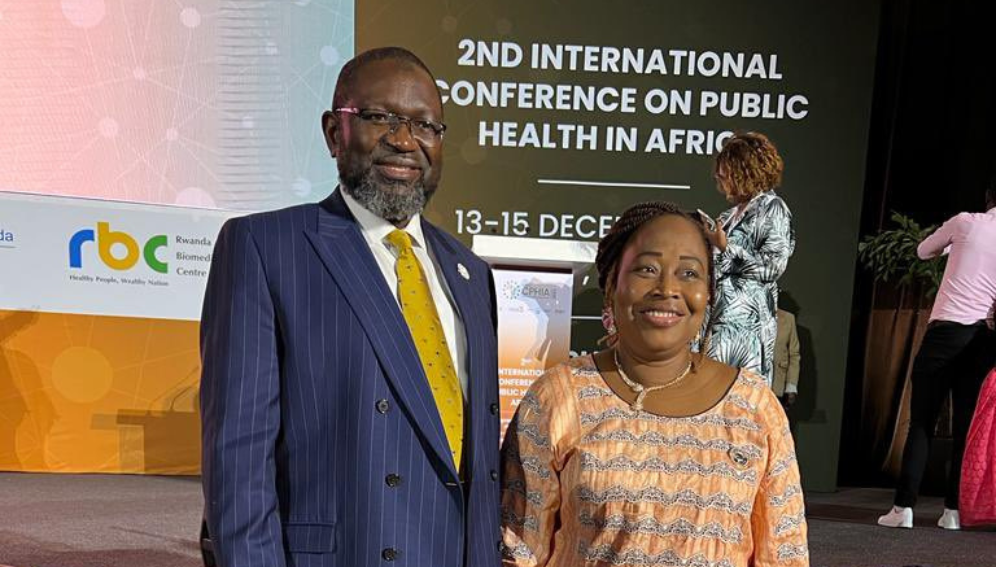Speed read
- Africa produces less than 0.1 per cent of the global vaccine supply
- Experts call for investments in Africa’s vaccine manufacturing capacity
- Having enough vaccines on the continent could help develop resilient health systems
By: Syriacus Buguzi
[KIGALI] Boosting investment in home-grown solutions and creating a sustainable market for Africa’s vaccine manufacturing could help improve the continent’s capacity to tackle health emergencies and chart a new path in public health, a conference has heard.
The second International Conference on Public Health in Africa (CPHIA 2022), which was held in Rwanda last month (13 -15 December), discussed building resilient health systems in Africa while learning lessons from the impact of COVID-19.
The conference ignited conversations on pandemic preparedness, increasing local vaccine production, tackling infectious and noncommunicable diseases, and African leadership in health.
The acting director for the Africa Centre for Disease Control and Prevention (Africa CDC), Ahmed Ouman during the conference, which was organised in collaboration with the Government of Rwanda says the continent needs to use its resources to build resilient health systems.
“[Africa should be] a continent that sets its own agenda, develops its own internal capacity, establishes its own priorities, seeks indigenous solutions, and uses domestic resources to initiate action.”
“As the continent recovers, it’s important that all countries invest in strengthening their health systems.”
Tedros Adhanom Ghebreyesus, WHO
“Without a new public health order that prioritises local ownership, regional solutions, equity and self-reliance, Africa will remain at the end of the queue for access to resources and medicines during global health emergencies,’’ Ouma added.

Ouma believes that Africa needs to make use of its resources to tackle health challenges
An overarching message on the need for Africa to build its manufacturing capacity was highlighted by scientists at the conference.
A worrisome situation
Africa produces less than 0.1 per cent of the global vaccine supply, according to the Global Alliance for Vaccines (Gavi), as scientists from Africa call for scientific collaborations and trade partnerships with the rest of the world to build sustainability.
Gavi further says that only one per cent of vaccines used in Africa are manufactured by the continent.
Githinji Gitahi, group chief executive officer of Amref Health Africa, explained: “The root of vaccine manufacturing is to first find the market. If Africa was to invest in research and development and start manufacturing vaccines. Who would buy the vaccines?
“Once we know which countries will buy, then Africa can go back to identify which type of vaccine molecules to research on for manufacturing,” says Gitahi. “Manufacturing shouldn’t be done by governments. This should be the job of the private sector. Governments must support the decision-making, policy frameworks, regulations and capacity.”
A study has shown that the COVID-19 pandemic exposed fault lines in global health research and development, with Africa contributing only one per cent of the global clinical trial output due to inadequate research infrastructure and limited financial resources.
Providing support to develop Africa
Citing investments already taking place in Africa in biomedical research and development, Cristina Niculescu, a life science investment specialist at the European Investment Bank, underscored the need to help build partnerships through smart moves that could spur research and development across the world.
“What is important to us is not to interfere with the local development,” Niculescu said, highlighting what she described as “the need to support companies that develop new products to bring new ways in clinical development and the supply chain”.
‘The fundamental role is to support what the African population is developing and leading forth,’ she explained during a high-level session on Africa’s role in biomedical research and development.
Agnes Binagwaho, a senior lecturer at US-based Harvard Medical School, called for approaches that would build Africa’s health systems capacity and create a lasting impact on the continent’s public health infrastructure.
“Having such conversations in Africa and for Africa and not travelling to the global North is one step. Then we need to stop the notion that Africa has the limited capacity with no skilled workforce,’’ added Binagwaho, who previously served as Rwanda’s minister of health.
Tedros Adhanom Ghebreyesus, the WHO’s director-general, added: “As the continent recovers, it’s important that all countries invest in strengthening their health systems, especially primary health care on their journey towards universal health coverage.”
This piece was produced by SciDev.Net’s Sub-Saharan Africa English desk.
This article was supported by Africa CDC’s 2nd International Conference on Public Health in Africa (CPHIA 2022).
Article first published on https://www.scidev.net/sub-saharan-africa/supported-content/africa-made-solutions-key-to-resilient-health-systems/
